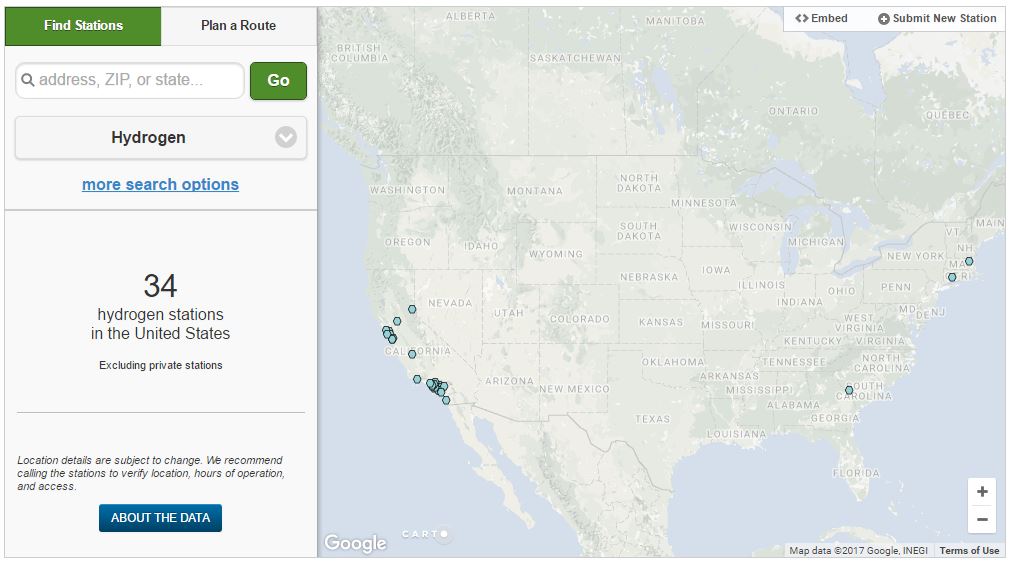A recent article
http://www.digitaltrends.com/cars/2017-honda-clarity-first-drive-review/
explained why one can drive a Honda Clarity Fuel Cell car basically for free. Needless to say, this attracted my attention, since I'm close to committing around $400 a month, plus insurance and electricity, to a Bolt. We're talking maybe $6K or more a year (including insurance and power) difference for three years.
The problem is that even though there's a hydrogen station a few miles from my home, it out of the way (wrong direction for my daily commute). Considering the Clarity's 250-300 mile real world range (not EPA) and my 90 mile daily drive, this means that pretty much every second day I'd need to spend a half hour going to fuel it. There is very little backup source for Hydrogen, even here in Los Angeles, along my normal drives.
By contrast, while the Bolt has less range, I can fill it up at home nightly, and if needs be at dozens of locations, not even counting my own workplace and my friends.
In summary, you can't even give me a Fuel Cell car. It's too impractical. Maybe someday there will be enough hydrogen stations, but that day isn't now.
A 200 mile class EV does the job so much better, and completely avoids the need for going to gas stations.
http://www.digitaltrends.com/cars/2017-honda-clarity-first-drive-review/
explained why one can drive a Honda Clarity Fuel Cell car basically for free. Needless to say, this attracted my attention, since I'm close to committing around $400 a month, plus insurance and electricity, to a Bolt. We're talking maybe $6K or more a year (including insurance and power) difference for three years.
The problem is that even though there's a hydrogen station a few miles from my home, it out of the way (wrong direction for my daily commute). Considering the Clarity's 250-300 mile real world range (not EPA) and my 90 mile daily drive, this means that pretty much every second day I'd need to spend a half hour going to fuel it. There is very little backup source for Hydrogen, even here in Los Angeles, along my normal drives.
By contrast, while the Bolt has less range, I can fill it up at home nightly, and if needs be at dozens of locations, not even counting my own workplace and my friends.
In summary, you can't even give me a Fuel Cell car. It's too impractical. Maybe someday there will be enough hydrogen stations, but that day isn't now.
A 200 mile class EV does the job so much better, and completely avoids the need for going to gas stations.

